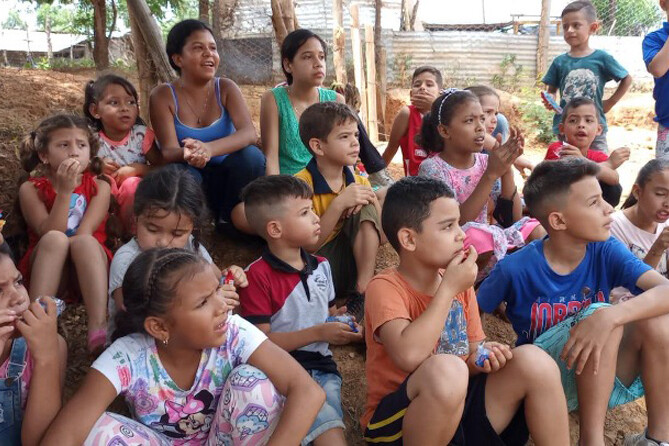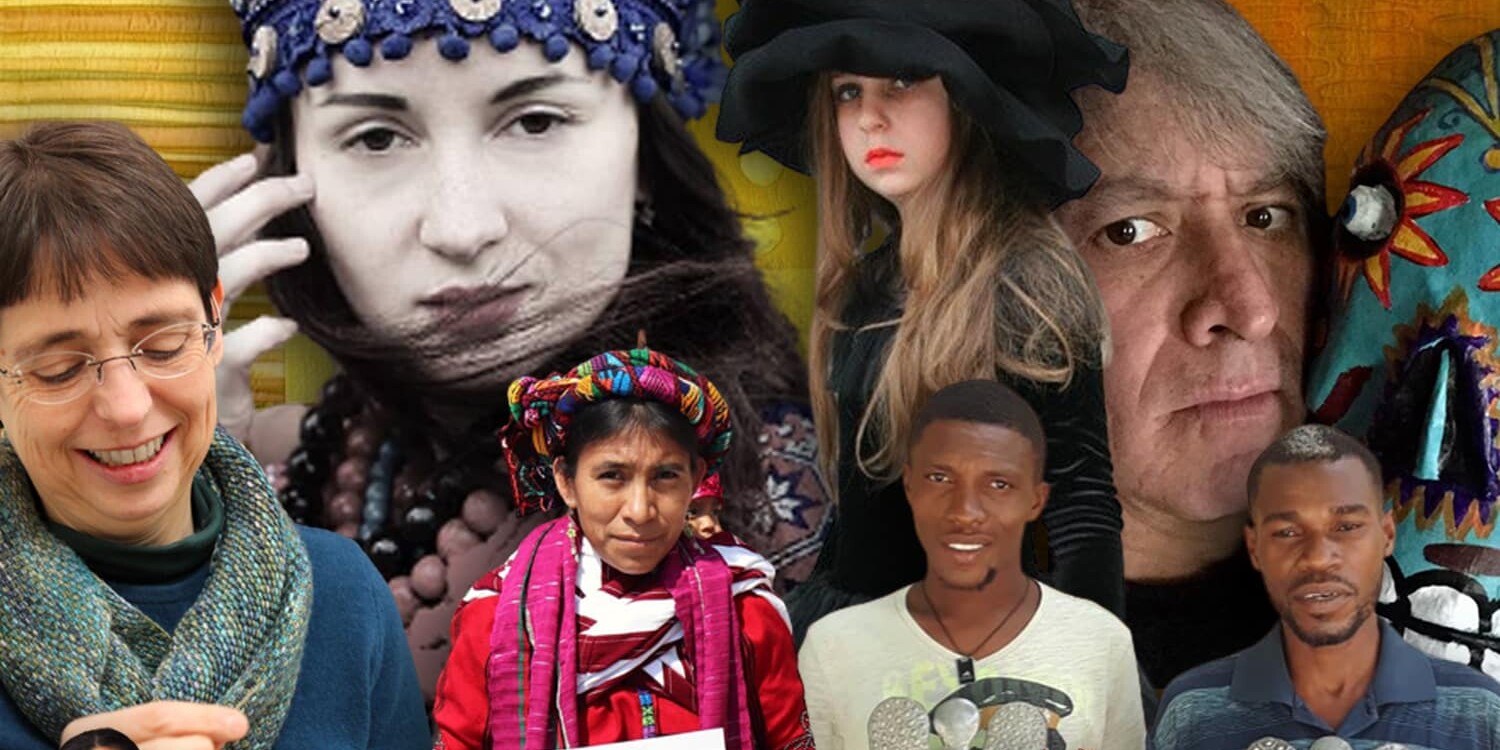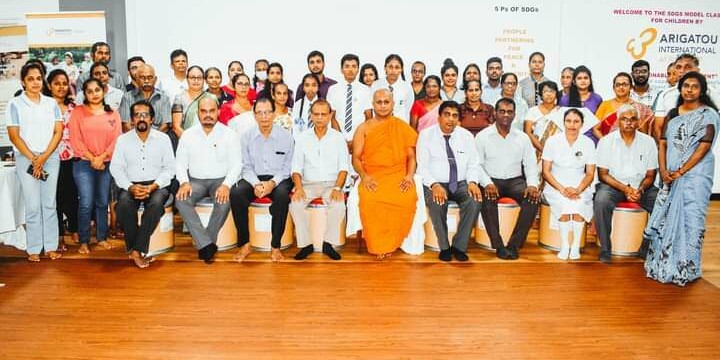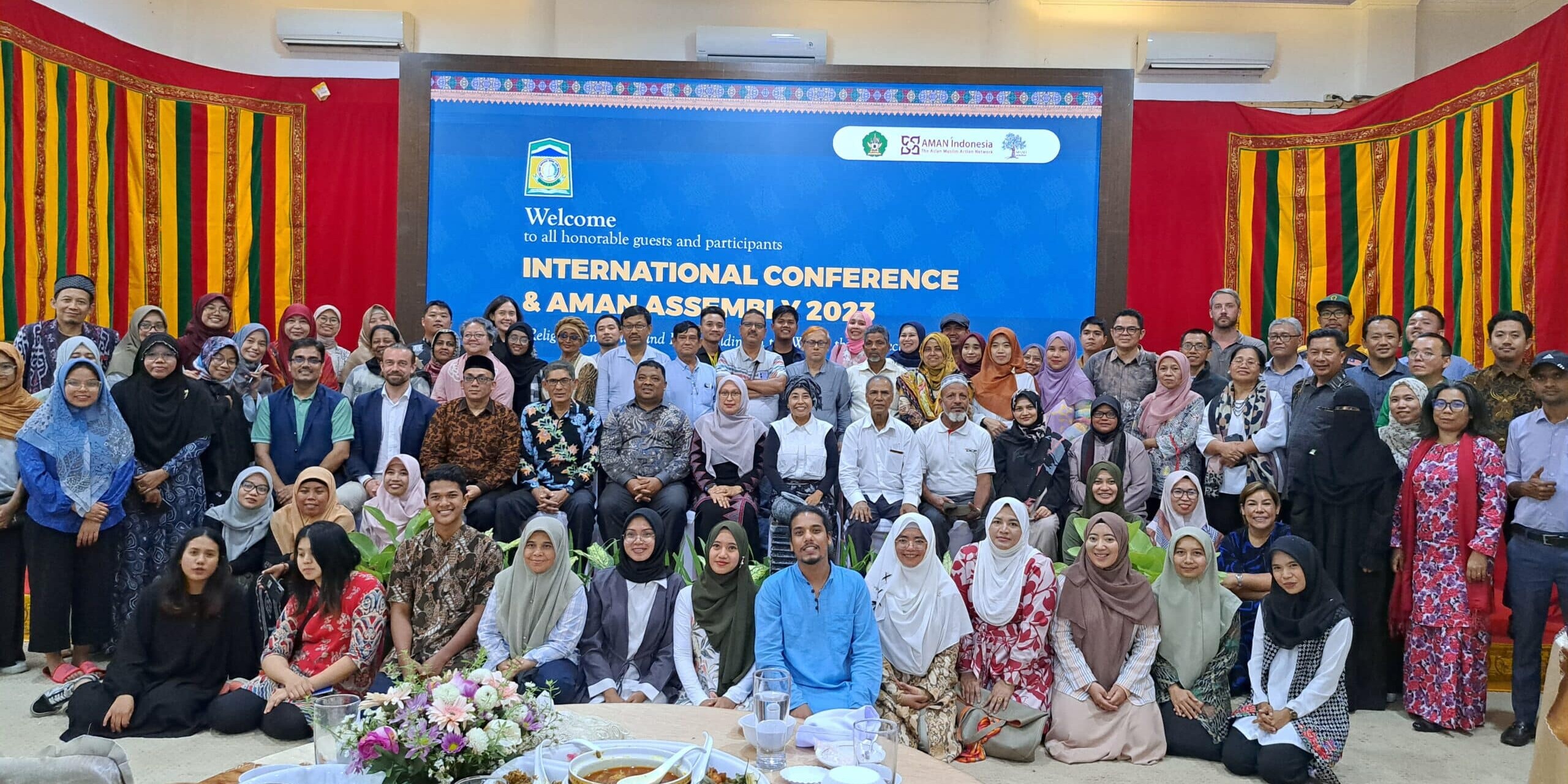By Lissette Mateus Roa, Co-Facilitator, Goldin Global Fellows
In 1981, the United Nations declared that September 21 would be observed as the International Day of Peace, devoting the day to ‘commemorating and strengthening the ideals of peace within and among all nations and peoples’. Now, the day is observed worldwide with many grassroots leaders and activists using it as a day to promote their activities and causes. Our 2022 Global Fellows (Spanish Edition) have been doing just that, by utilizing this opportunity to engage with their communities, peers, politicians, and civil society groups to further messages and actions around peace and healing. See what some of them have been up to below.
En 1981, las Naciones Unidas declararon que el 21 de septiembre sería señalado como el Día Internacional de la Paz, dedicando el día a “conmemorar y fortalecer los ideales de paz dentro y entre todas las naciones y pueblos”. Ahora, el día es celebrado en todo el mundo por muchos líderes y activistas de base que lo ven como un día para promover sus actividades y causas. Nuestros Global Fellows 2022 (edición en español) han estado haciendo exactamente eso, al utilizar esta oportunidad para interactuar con sus comunidades, pares, políticos y grupos de la sociedad civil para promover mensajes y acciones en torno a la paz y la sanación. Vea lo que algunos de ellos han estado haciendo a continuación.

Peace agreement progress in Colombia
By Geiner Alfonso Arrieta Hurtado, Goldin Global Fellow from Colombia
For the International Day of Peace, I participated in a discussion on the commemoration of the 5 years of Colombia’s Peace Agreement organised by ONU and Conversa Foundation at the National University of Colombia, in La Paz Cesar. The Peace Agreement in Colombia, signed by the FARC-EP and the national government, yielded great expectations for Colombians to make our dream of total peace come true once and for all. That hope was ongoing for six years, starting with the dialogues in 2012 until the sign off day on Nov 24th 2016. It gave us optimism for the new generations for whom we do not want to inherit the same fifty years of sadness which we endured due to the armed conflict. All those who signed off on the peace agreement believe in stopping the armed struggle and share a desire to see democracy within our politics. We strongly trust in peace in territories where the will of doing things better is present in governors, institutions, and population.
Therefore, it is necessary to stop systematic murders to affected population, social leaders, and peace agreement signatories. Peace is not just about the ceasefire and halting shooting, but it is about personal wellbeing too.

En el Día Internacional de la Paz, participé en un conversatorio sobre la conmemoración de los 5 años del acuerdo de paz en Colombia, organizado por la ONU y la Fundación Conversa, en la Universidad Nacional de Colombia, en La Paz Cesar. El Acuerdo de Paz en Colombia, firmado por las FARC-EP y el Gobierno Nacional, generó grandes expectativas en los colombianos de hacer realidad, de una vez por todas, nuestro sueño de tener una paz total. Esa esperanza duró seis años, desde los diálogos de paz que empezaron en el año 2012 hasta el día de la firma del acuerdo de paz el 24 de noviembre de 2016. Nos dió optimismo para las nuevas generaciones, a las que no queremos heredar los mismos cincuenta años de tristeza que sufrimos por el conflicto armado. Todos los que firmaron el acuerdo de paz creen en la necesidad de detener la lucha armada y comparten el deseo de ver una democracia verdadera dentro de nuestra política. Confiamos firmemente en la paz en los territorios donde la voluntad de hacer las cosas mejor esté presente en gobernantes, instituciones y la población civil.
Por ello, es necesario frenar los asesinatos sistemáticos a la población afectada, líderes sociales y firmantes del acuerdo de paz. La paz no se trata solo del alto al fuego y la interrupción de los disparos, sino también del bienestar personal.

Food, Culture, and Memory for facilitating Peace in Argentina
From Diana Rocio Gomez Torres, Goldin Global Fellow from Argentina
On September 22nd, Trenzar Memorias, Network of studies on memory and culture, carried out a workshop on “Cooking memories: What does what we eat tell us about our society and culture?” within the framework of the International Day of Peace at the Tecnópolis student fair in the city of Buenos Aires. Our objective was to ignite within the high school students the curiosity for cultural studies and about memory from their daily lives; as well as contributing to the construction of peace through the recognition and respect for cultural differences in Latin America”.

“Self-recognition and that of cultural differences are fundamental factors to building peace.”
Trenzar Memorias, Red de estudios sobre memoria y cultura llevará a cabo el taller “Cocinando memorias: ¿Qué nos dice lo que comemos sobre nuestra sociedad y cultura?” El 22 de septiembre en el marco del día Internacional de la Paz y de la feria estudiantil Tecnópolis en la ciudad de Buenos Aires. Nuestro objetivo es despertar en las y los estudiantes de secundaria de Buenos Aires la curiosidad por los estudios culturales y sobre la memoria a partir de sus cotidianidades; así como contribuir a la construcción de la paz a través del reconocimiento y respeto de las diferencias culturales en América Latina.
“El reconocimiento propio y el de las diferencias culturales son factores fundamentales en la construcción de la paz.”

Promoting community dialogue between migrant populations and locals along the Venezuelan-Colombian border
From Natasha Duque Torres, Goldin Global Fellow from Venezuela
“Last week we carried out some activities in commemoration of the International Day of Peace. We visited a settlement in the rural area of Cúcuta, which is a Colombian city which borders Venezuela; here resides a large Venezuelan migrant population living alongside the Colombian population, where both groups have been welcomed and integrated. During the activity, we not only strengthened the construction of peace, mediation, and conflict resolution for the leaders of the community, but we also had a space for recreation with the children to create strategies for them to be the builders of peace in their communities. They called themselves the first brigade of “Guardians of Peace” of the Belén settlement.

The goal of the “Guardians of Peace” is for children to learn about peace and replicate what they have learned at home, so that during episodes of differences or conflicts that arise in their home and their communities they play an essential role to solve conflicts. Fulfilling their dream of being peacemakers.

“La semana pasada decidimos realizar una actividad en conmemoración del día internacional de la paz, visitamos un asentamiento del área rural de Cúcuta, Norte de Santander, el cual está integrado por población migrante venezolana y población colombiana que acogieron y apostaron a la integración.
Durante la actividad no solo realizamos ejercicios de fortalecimiento en construcción de paz, mediación y resolución de conflictos con las lideresas de la comunidad, sino que además tuvimos un espacio de esparcimiento con los niños; Esto con la finalidad de crear estrategias para que ellos mismos sean los constructores de paz de sus comunidades. Durante la jornada, los niños se autodenominaron como “La Primera Brigada de Guardianes de la Paz” del asentamiento Belén. El objetivo de los Guardianes de la Paz es que lo niños aprendan diferentes temas en materia de paz y que puedan a su vez replicar esto en sus casas; así, durante los episodios de diferencias o conflictos que surjan en su hogar y sus comunidades, ellos pueden jugar un papel fundamental para resolverlos. Ellos sueñan con ser forjadores de paz.”

Author
-
Travis Rejman is the founding Executive Director of the Goldin Institute, a global non-profit based in Chicago that has inspired, equipped and connected grassroots leaders in over 50 countries over the last twenty years. Bio
View all posts




